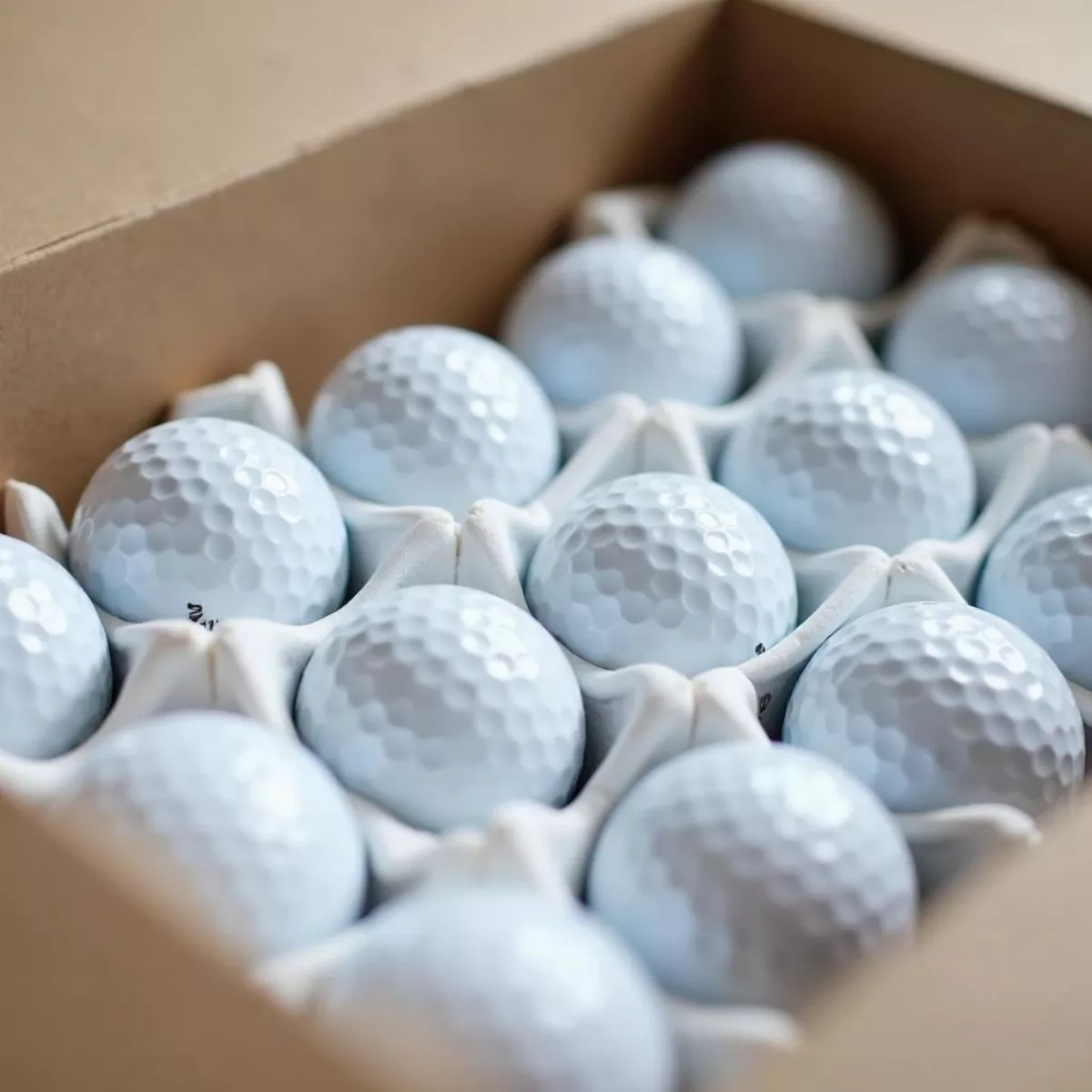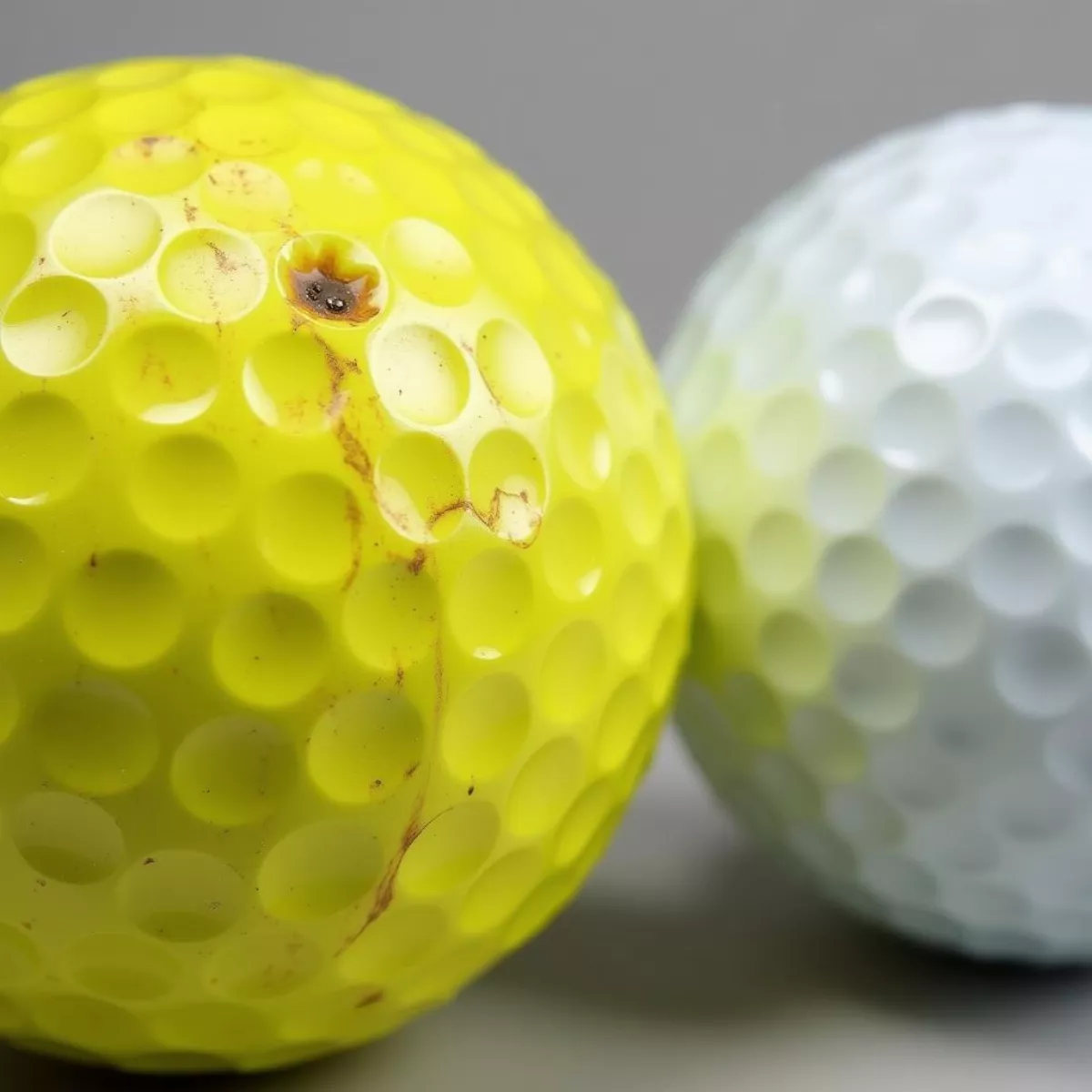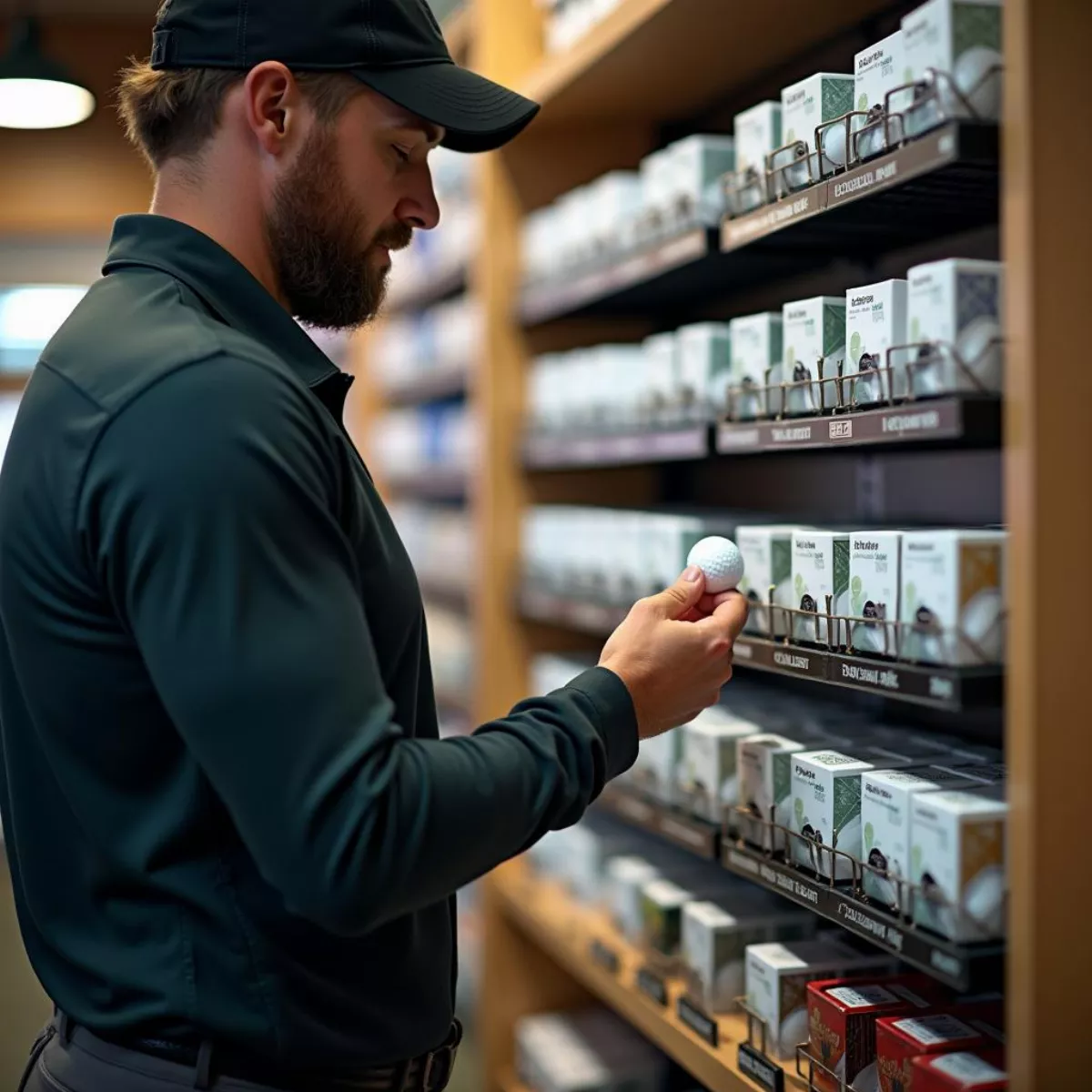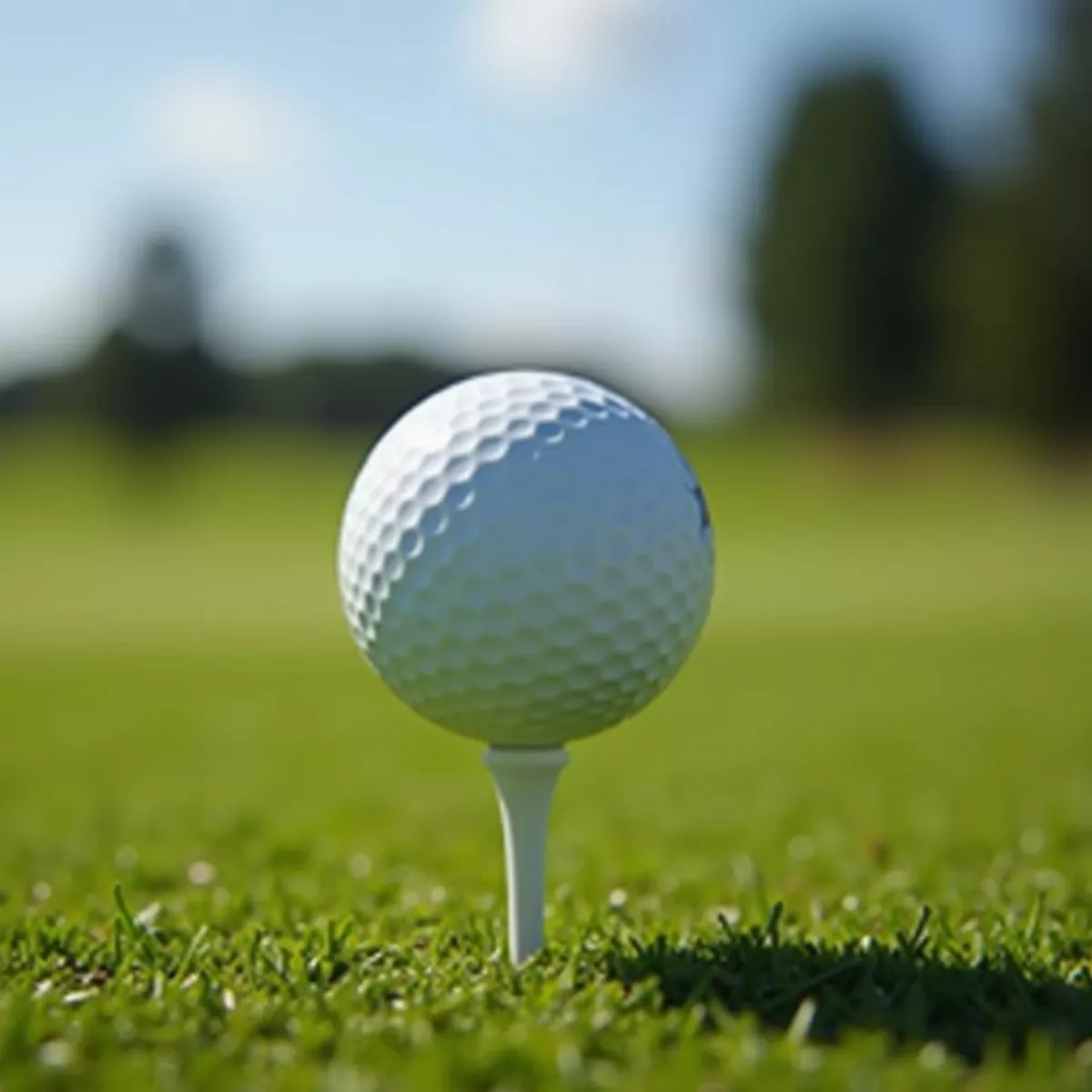Golfers often invest in high-quality golf balls to improve their game. But have you ever wondered, “do golf balls have a shelf life?” Understanding the longevity of your golf balls is crucial for both performance and your wallet. In this comprehensive guide, we’ll explore the shelf life of golf balls, how to properly store them, and whether expired golf balls can still deliver results.
What is the Shelf Life of Golf Balls?
Shelf life refers to the period during which a product remains effective and safe to use. For golf balls, the common belief is that they can last a long time, but that does not mean they will perform optimally forever. Using a “dead” golf ball can significantly affect your game.
Factors Influencing the Shelf Life of Golf Balls
Several elements contribute to the shelf life of golf balls:
- Material Composition:
- Most golf balls are made from rubber, plastic, and polyurethane, which can degrade over time.
- Two-piece balls tend to last longer because of their construction, whereas multi-layer balls may wear out faster during play and storage.
- Storage Conditions:
- Golf balls should be stored in a cool, dry place away from direct sunlight.
- Extreme temperatures can warp and degrade the materials.
- Moisture Exposure:
- Excess humidity can lead to mold growth or affect the ball’s internal structure.
- Always keep golf balls in a moisture-free environment.
- Usage Patterns:
- Golf balls used regularly can wear out faster due to surface scuffing and nicks.
- Conversely, brand-new, unused balls can sit on a shelf for years but still perform well depending on the above conditions.
Expert Perspective: According to a study by the USGA, most golf balls maintain their performance for 3-5 years if stored correctly under optimal conditions.
 Golf balls stored in box
Golf balls stored in box
How to Store Golf Balls for Longevity
Proper storage can enhance the shelf life of your golf balls. Here’s how:
- Keep Them in Their Original Packaging: This helps protect them from UV rays and moisture.
- Avoid Temperature Extremes: Store them in a climate-controlled environment.
- Use a Golf Ball Bag: A dedicated ball bag with ventilation can help keep things dry.
- Regular Inspection: Periodically check your golf balls for damage or signs of deterioration.
| Storage Tips | Description |
|---|---|
| Cool Location | Store in a dry and cool area, away from sunlight. |
| Out of Moisture | Keep away from humid places, like basements. |
| Original Packaging | Retain balls in their original boxes, if possible. |
Can Expired Golf Balls Still Be Used?
Yes, but with caution. The older the ball, the more you may notice performance degradation. A golf ball that has been out of production for several years might not bounce the same or achieve the same distance.
Performance Decline Over Time
- Start of Degradation (1-2 years): Minor surface wear and tear, but performance largely intact.
- Moderate Decline (3-5 years): Noticeable scuffing, discolored dimples, and some loss of distance.
- Significant Impact (5+ years): Old balls can feel “dead,” launching less effectively or spinning poorly.
 Worn golf ball next to new golf ball
Worn golf ball next to new golf ball
Some Signs Your Golf Balls Have Expired:
- Visible Damage: Cracks or cuts on the surface.
- Loss of Compression: If the ball doesn’t bounce back when pinched.
- Discoloration: Yellowing or fading of the color.
The Cost of Using Old Golf Balls
Using old or expired golf balls can cost you strokes on the course, which can be frustrating. The performance drop can be compared to using a dead club—you wouldn’t use a broken driver, so why play with an ineffective ball?
Common Misconceptions About Golf Balls
- Myth #1: “Golf balls last forever.”
- Reality: They degrade over time.
- Myth #2: “Finding old balls is just as good as new.”
- Reality: Used balls might be scuffed or damaged.
- Myth #3: “Expensive golf balls last longer.”
- Reality: Even premium balls can degrade without proper care.
 Golfer selecting golf ball
Golfer selecting golf ball
Key Takeaways
- Shelf Life: Generally, golf balls can last 3-5 years with proper storage.
- Storage Basics: Keep golf balls in a cool, dry, and dark place.
- Performance Matters: Expired golf balls can negatively impact your game.
- Regular Check-Ups: Inspect golf balls to ensure optimal performance.
- Know When to Replace: If you see significant wear, it’s time to invest in new balls.
Frequently Asked Questions (FAQ)
1. How can I determine if my golf balls are still good to use?
Inspect them for physical damage, feel for compression, and consider their age. If you find cracks or significant discoloration, it’s likely time to replace them.
2. Do different brands of golf balls have different shelf lives?
Yes, brands use various materials that can influence durability. Generally, higher-quality materials lead to a longer shelf life.
3. Can I store my golf balls in the garage?
This depends on the climate. If your garage heats up or gets humid, it’s best to keep them in a more stable indoor environment.
4. How do I properly clean old golf balls?
You can soak them in soapy water for about 10-15 minutes, then scrub gently with a soft brush before rinsing thoroughly.
5. Are there any specific indicators that my golf balls are too old?
Yes, visible cracks, loss of shape, and reduced performance during play are key indicators.
6. Is there a difference in shelf life between practice and premium balls?
In general, premium balls may last longer but will still degrade over time if not stored properly.
7. What is the recommended temperature to store golf balls?
A temperature between 50°F and 70°F is ideal for maintaining golf ball integrity.
8. Should I skip used golf balls to save money?
While used or “found” balls can be cost-effective, make sure they are in good condition without excessive wear for the best performance.
9. Can I use golf balls that have been submerged in water?
It’s not advisable, as water can compromise the internal structure of the ball. If they soaked for a long time, it’s better to discard.
10. How do I know it’s time to buy new golf balls?
If your golf balls no longer feel responsive, show visible signs of wear, or if you’ve had them for more than 5 years without proper care, consider replacing them.
 Golf ball on tee
Golf ball on tee
By being mindful about how you care for and store your golf balls, you can extend their lifespan and enhance your overall performance on the course. Now that you know about the shelf life of golf balls, make sure you’re getting the most out of every swing!
If you have any more questions, feel free to reach out and don’t forget to check our other golf-related articles for more tips and insights!